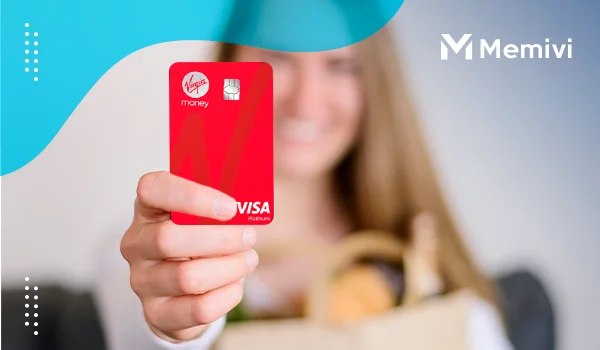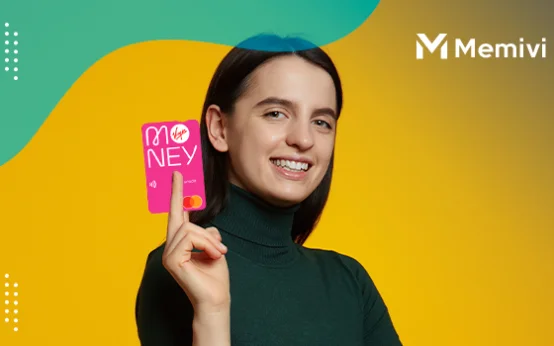
How to Use the Virgin Money Transfer Card Effectively
The Virgin Money Transfer Credit Card is more than a short-term solution—it’s a powerful tool when used strategically. Once approved, users can transfer a portion of their credit limit directly to their bank account. This feature can help pay off overdrafts, consolidate debt, or cover large expenses without the typical high-interest charges of a personal loan—provided the balance is paid before the 0% interest period expires.
You’ll receive a promotional window (often 12 to 24 months) to repay the amount without paying interest. To initiate a money transfer, simply access the Virgin Money app or online portal, navigate to “money transfer,” choose the amount (within your limit), input your bank details, and confirm.
Always schedule repayments ahead of time to avoid reverting to the standard APR, which can be significantly higher.
Smart FAQs About Virgin Money Transfer Card (That You Won’t Find Everywhere)
1. Can I use the card for regular purchases and transfers simultaneously?
Yes, but promotional rates often apply only to the transfer portion. Purchases may accrue interest unless there’s a separate offer—check your terms.
2. Is the money transferred immediately?
Usually, yes. Most transfers process within 1–2 working days, depending on your bank.
3. Can I pay off another credit card with a money transfer?
Not directly. But you can transfer money into your current account and use that to pay off other cards.
4. Are there hidden fees?
There’s typically a one-time money transfer fee (e.g., 4%) and a possible balance transfer fee if you move other debts. No hidden monthly fees.
5. Does the credit limit differ between purchases and transfers?
No. Your total limit is shared between all usage types. However, Virgin Money may cap how much of that limit can be transferred.
6. What happens if I miss a payment?
You’ll lose the 0% interest deal and revert to the standard variable rate (over 20% APR in many cases). It also affects your credit score.
7. Can I repay early?
Absolutely—and it’s encouraged. Virgin Money doesn’t charge for early repayment.
8. Will applying hurt my credit?
Yes, temporarily. Like most credit applications, it involves a hard credit search. However, responsible use can improve your credit in the long term.
Insider Tips to Maximise the Card’s Value

1. Use for Consolidation, Not Spending: Avoid treating it as extra income. Use it to reduce high-interest debts—especially overdrafts, payday loans, or store cards.
2. Stack with Cashback: Pay off bills (e.g., rent or subscriptions) via your bank using the transferred money, and use a cashback credit card for regular purchases.
3. Avoid Cash Withdrawals: Cash advances are rarely covered under promotional offers and often trigger high fees and immediate interest.
4. Don’t Use It Close to the Expiry Window: Request your money transfer early in the 0% term. Delaying means less time to repay interest-free.
5. Watch Your Credit Utilisation: Keep your usage under 30% of your limit to maintain a healthy credit profile. Using 90%+ can harm your score.
Alternatives and Complementary Solutions
If you’re not approved or want to explore other options, consider these:
| Alternative | Key Feature | Ideal For |
| MBNA Transfer Card | Up to 18 months 0% on money transfers | Long-term planners |
| Barclaycard Platinum | Low fee and long 0% window | Budget-conscious users |
| Zopa Personal Loan | Fixed monthly payments over 1–5 years | Users with predictable income |
| Starling Bank Overdraft | Simple overdraft with low daily interest | Short-term emergencies |
Some users even use the Virgin Money card in conjunction with a 0% purchase card—borrowing for transfers on one, and buying interest-free with another, balancing repayments smartly.
Final Thoughts: When This Card Makes Sense (And When It Doesn’t)
If you’re disciplined with payments and have a clear use for the funds—not just extra spending—this card offers real flexibility and savings potential. It’s especially valuable for:
- Users looking to escape high-interest overdrafts.
- People managing fluctuating incomes who need short-term liquidity.
- Anyone seeking to avoid early loan commitments.
However, it’s not ideal for those who tend to carry balances, forget due dates, or rely on credit to finance their lifestyle.



 The Ultimate Guide to Maximizing Your Virgin Money Everyday Cashback Card <p class='sec-title' style='line-height: normal; font-weight: normal;font-size: 16px !important; text-align: left;margin-top: 8px;margin-bottom: 0px !important;'> Get up to £15 monthly cashback, enjoy partner rewards, and pay no annual or foreign fees with the Virgin Money Everyday Cashback Card—perfect for daily spending. </p>
The Ultimate Guide to Maximizing Your Virgin Money Everyday Cashback Card <p class='sec-title' style='line-height: normal; font-weight: normal;font-size: 16px !important; text-align: left;margin-top: 8px;margin-bottom: 0px !important;'> Get up to £15 monthly cashback, enjoy partner rewards, and pay no annual or foreign fees with the Virgin Money Everyday Cashback Card—perfect for daily spending. </p>  Bonus Points to Free Travel: A Guide to Amex® Preferred Rewards Gold <p class='sec-title' style='line-height: normal; font-weight: normal;font-size: 16px !important; text-align: left;margin-top: 8px;margin-bottom: 0px !important;'> Dining perks, travel points, lounge access – we’ll show you how to make every benefit of the American Express® Preferred Rewards Gold count. </p>
Bonus Points to Free Travel: A Guide to Amex® Preferred Rewards Gold <p class='sec-title' style='line-height: normal; font-weight: normal;font-size: 16px !important; text-align: left;margin-top: 8px;margin-bottom: 0px !important;'> Dining perks, travel points, lounge access – we’ll show you how to make every benefit of the American Express® Preferred Rewards Gold count. </p>  Santander All in One Credit Card: One Card, Many Possibilities <p class='sec-title' style='line-height: normal; font-weight: normal;font-size: 16px !important; text-align: left;margin-top: 8px;margin-bottom: 0px !important;'> Unlock cashback, 0% interest, and no foreign fees – all in one smart solution. </p>
Santander All in One Credit Card: One Card, Many Possibilities <p class='sec-title' style='line-height: normal; font-weight: normal;font-size: 16px !important; text-align: left;margin-top: 8px;margin-bottom: 0px !important;'> Unlock cashback, 0% interest, and no foreign fees – all in one smart solution. </p>